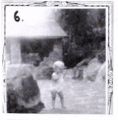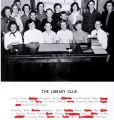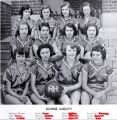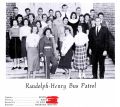Difference between revisions of "User:NightcoreSwift004"
(→Joseph Otto Weston: Not done year) |
m (→William Teer) |
||
| (27 intermediate revisions by the same user not shown) | |||
| Line 4: | Line 4: | ||
===Robert Franklin Chandler Sr=== | ===Robert Franklin Chandler Sr=== | ||
{{incomplete}} | {{incomplete}} | ||
Robert Franklin Chandler Sr. (8 February, 1906 - 27 December, 1977) was Bob's father and Chris's paternal grandfather. | '''Robert Franklin Chandler Sr.''' (8 February, 1906 - 27 December, 1977) was Bob's father and Chris's paternal grandfather. | ||
Born and raised in a rural area of {{w|Chilton County, Alabama|Chilton County}}, Alabama, he was the son of a farmer and a {{w|day laborer}} | Born and raised a Baptist in a rural area of {{w|Chilton County, Alabama|Chilton County}}, Alabama, he was the son of a farmer and a {{w|day laborer}} Joseph Jessie Chandler and Martha Headley. He was the 9th out of 12 children in the family, 3 of whom died infancy. After dropping out of high school in his freshman year, he worked at a steel mill before moving to the Dallas-Fort Worth area at age 18, where he found work as an insurance agent. In June 1962, Robert, a Baptist, married Jean Hollomon, a Methodist—the daughter of a pharmacist—when they were both at a young age of 20, eventually having their only child, Bob, a year later. | ||
After Bob was born, presumably taking the recommendation of his wife and his father-in-law, Robert worked as a pharmacist for a few years before they moved back to Alabama in the early 1930s, living in {{w|Sylacauga, Alabama|Sylacauga}}. There, he worked for almost 20 years as a supply office worker for textile industry {{w|Avondale Mills}} (excluding a few years of military works for World War 2), where his siblings was also working at. Jean would later also briefly work at Avondale. Despite his steady employment, which provided an income of around $32,000 annually, the family faced financial struggles, as later recounted by Bob in a letter detailing their issues with poverty. Robert's wife, Jean, would unexpectedly pass away at a young age of 39 in May 1945, shortly before Bob finished high school. Robert Sr would later get remarried in April 1949 to Dorothy Julia Wolfe—the daughter of a lumber grader—who has a daughter from a previous marriage and he would later adopt her. | After Bob was born, presumably taking the recommendation of his wife and his father-in-law, Robert worked as a pharmacist for a few years before they moved back to Alabama in the early 1930s, living in {{w|Sylacauga, Alabama|Sylacauga}}. There, he worked for almost 20 years as a supply office worker for textile industry {{w|Avondale Mills}} (excluding a few years of military works for World War 2), where his siblings was also working at. Jean would later also briefly work at Avondale. Despite his steady employment, which provided an income of around $32,000 annually, the family faced financial struggles, as later recounted by Bob in a letter detailing their issues with poverty. Robert's wife, Jean, would unexpectedly pass away at a young age of 39 in May 1945, shortly before Bob finished high school. Robert Sr would later get remarried in April 1949 to Dorothy Julia Wolfe—the daughter of a lumber grader—who has a daughter from a previous marriage and he would later adopt her. | ||
| Line 15: | Line 15: | ||
===Joseph Otto Weston=== | ===Joseph Otto Weston=== | ||
Joseph Otto "Joe" Weston (3 October, 1896 - 8 April, 1955), was Barb's father and Chris's maternal grandfather. | '''Joseph Otto "Joe" Weston''' (3 October, 1896 - 8 April, 1955), was Barb's father and Chris's maternal grandfather. | ||
Born and raised in rural area of {{w|Red Oak, Virginia}}, he was the 4th child out of 5th and the youngest son of a farmer Joseph Edward Chandler Jr. and Sarah Ann Hamilton. Up until he was around 5 years old, he was {{w|unbreeched}}, meaning he wore girly clothes at a very young age. | Born and raised in rural area of {{w|Red Oak, Virginia}}, he was the 4th child out of 5th and the youngest son of a farmer Joseph Edward Chandler Jr. and Sarah Ann Hamilton. Up until he was around 5 years old, he was {{w|unbreeched}}, meaning he wore girly clothes at a very young age. Dropping out of school at 5th grade, Joe started working on the farm at an early age his whole life. His father Joseph Jr. and grandfather Joseph "John" Weston Sr., were both tobacco farmers and Joe himself would later become a tobacco farmer and also a carpenter. | ||
He continued working on the farm while living with his parents (excluding a brief military works for World War 1) until he was 30 years old, when he married a 15 years old daughter of tobacco farmer Carrie Edna Wynn of {{w|South Hill, Virginia|South Hill}}. They were married in Carrie's mother's hometown {{w|Warrenton, North Carolina}} in February 1927. From 1927 to 1950, they had 8 children together, including Corrina (1934), Barbara (1941), Harriet (1947) and Wayne (1950) and raised them in a low-income farming household in northwest area of Red Oak. In his later life during World War 2 (1942), Joe was assigned to work as a carpenter for around a year to build a military base Fort Pickett (now {{w|Fort Barfoot}}) in {{w|Blackstone, Virginia}}, 50 miles northeast of Red Oak. | |||
Joe would soon get into a couple incidences that would soon get to his death. When Barb was two years old, she witnessed his father falling off the roof, almost killing himself while painting his house. About 12 years later Joe would instantly pass away due to broken neck after falling off under a rear wheel of his horse drawn wagon while at work hauling woods. His body was discovered when a driverless horse & wagon arrived at a nearby service station. Barbara was 13 when he was killed and the younger children, Madeline, Harriet and Wayne were 11, 8 and 5 years old respectively. | |||
After his death, his property, a 9.1 acres of land which contained a house and a farm with 971 pounds of tobacco, was inherited by his two children, Barbara and William Stanley Weston (1932 - 1984). Barbara and Stanley fought against each other to fully have their dad's property, with Stanley bringing a whole lawsuit about it from March 1974 to March 1975, with no knowledge of who had won the lawsuit. It's unknown why two of his children wanted to fully have his whole property, but knowing Barb, Stanley might have done so in order to prevent Barb from selling their dad's property for money. | |||
===Robert Wynn (rewritting)=== | ===Robert Wynn (rewritting)=== | ||
'''Robert Pettus Wynn''' (17 Nov 1882 - 20 Jan 1954), was Barb's maternal grandfather and Chris's matrilineal great-grandfather. | |||
Born in South Hill area, he was the middle of three children and the oldest son of illiterate farmer Francis Wynn and Harriet Jones. | |||
===John James Hollomon (rewriting)=== | ===John James Hollomon (rewriting)=== | ||
| Line 32: | Line 37: | ||
===William Teer=== | ===William Teer=== | ||
'''Dr. William Teer''' (March 29, 1837 - October 19, 1919) was an osteopath and a Confederate army soldier who was Bob's matrilineal great-grandfather and Chris's great-great grandfather. | |||
Born in {{w|Neshoba County, Mississippi}}, he was the third child out of eight siblings to a farmer Curtis Wiley Teer and Dollie Jordan. He grew up in Neshoba County and later to {{w|Angelina County, Texas}} since he was 10 years old. The family relocated again to {{w|Hopkins County, Texas|Hopkins County}} outside of {{w|Cumby, Texas|Cumby}} in 1860, where he worked for his parents' farm before enlisting for the Civil War. | |||
William | In October 1861, aged 24, William and his two brothers James (1830 - 1863) and Wiley (1839 - 1862), enlisted in the Confederate Army in San Antonio. Serving in the Company K, 4th Texas Cavalry Regiment, William participated in the {{w|New Mexico campaign}} under {{w|Henry Hopkins Sibley|General Sibley}}. Both of his brothers died during the war; James died at a Union prison camp in Williamsburg, Virginia, in 1863. William and Wiley fought in the battles of {{w|Battle of Valverde|Valverde}} and later to {{w|Battle of Glorietta Pass|Glorietta Pass}}, where in April 1862, Wiley was reportedly "lost or killed" and William was seriously wounded; his right arm was shattered by a minie ball, had a damaged spleen and later contracting hepatitis at a hospital. After the capture of Texas Army's supply wagons by US Army, they retreated, leaving William and other recovering soldiers behind at the {{w|Santa Fe, New Mexico|Santa Fe}} hospital before subsequently being captured in the same month. He was later paroled in May 1862, walking a 1,500 miles journey from Santa Fe, New Mexico to his home in Texas. Due to his injuries and disability, he was honorably discharged from his unit by General {{w|Thomas Green (general)|Thomas Green}} in September 1863 and returned to his home in Cumby, working as a farmer despite his shattered right arm. | ||
In November 1903, inspired by the nerve damage in his shattered right arm, William established himself as an {{w| | William was married four times throughout his life. In December 1862, he married his colleague's sister Mary Frances Carraway of Alabama, who passed away in 1867. He then remarried Louisa Frances Spears of Tennesse, in July 1868, but that marriage also ended early. In January 1871, he married Nancy Jane Coburn of {{w|Ashley County, Arkansas}}. From this marriage, he had seven children, including Mary Francis Teer, Bob's maternal grandmother and the wife of John James Hollomon. After Nancy's death in 1894, William remarried to Bettie King of {{w|Mount Pleasant, Texas|Mount Pleasant}} in March 1907 at age 70, and this marriage lasted until his death in 1919. | ||
In November 1903, inspired by the nerve damage in his shattered right arm, William established himself as an {{w|osteopathic}} doctor in {{w|Tyler, Texas}}, specializing in "Exophthalmic Goitre, Biliary Calculi (Gall Stones) Paralysis, and all Nervous Diseases." He became the president of the State Association of Drugless Doctors of Texas and advocated massaging and other holistic approaches to wellness. As a doctor in Tyler, he was described as a highly respected figure, endorsed by many prominent members of the city's society. William retired in 1916 after suffering a paralyzing stoke and resided at Texas Confederate Home in Austin before moving back to Cumby in 1918, a beloved city of his in which he was considered a prominent citizen. He later passed away in October 1919 at his youngest daughter's {{w|Miller Grove, Texas|Miller Grove}} home caused by a second paralyzing stroke. | |||
William was mentioned in a book titled "[https://archive.org/details/texanswhoworegra00john| Texans who Wore the Gray (1907)]", written by a Confederate officer, journalist, and author Sidney Smith Johnson (1840-1910). Johnson described William as "a brave Confederate soldier, a man of fine education, and a Christian gentleman." | William was mentioned in a book titled "[https://archive.org/details/texanswhoworegra00john| Texans who Wore the Gray (1907)]", written by a Confederate officer, journalist, and author Sidney Smith Johnson (1840-1910). Johnson described William as "a brave Confederate soldier, a man of fine education, and a Christian gentleman." | ||
===Joseph Chandler (rewriting)=== | ===Joseph Chandler (rewriting)=== | ||
===Rev Sidney Chandler (rewriting==== | |||
===Francis Weston (rewriting)=== | |||
==Sandbox page test== | ==Sandbox page test== | ||
Latest revision as of 16:55, 17 May 2024
Chris' ancestors sandbox test for a page
Robert Franklin Chandler Sr
Robert Franklin Chandler Sr. (8 February, 1906 - 27 December, 1977) was Bob's father and Chris's paternal grandfather.
Born and raised a Baptist in a rural area of Chilton County, Alabama, he was the son of a farmer and a day laborer Joseph Jessie Chandler and Martha Headley. He was the 9th out of 12 children in the family, 3 of whom died infancy. After dropping out of high school in his freshman year, he worked at a steel mill before moving to the Dallas-Fort Worth area at age 18, where he found work as an insurance agent. In June 1962, Robert, a Baptist, married Jean Hollomon, a Methodist—the daughter of a pharmacist—when they were both at a young age of 20, eventually having their only child, Bob, a year later.
After Bob was born, presumably taking the recommendation of his wife and his father-in-law, Robert worked as a pharmacist for a few years before they moved back to Alabama in the early 1930s, living in Sylacauga. There, he worked for almost 20 years as a supply office worker for textile industry Avondale Mills (excluding a few years of military works for World War 2), where his siblings was also working at. Jean would later also briefly work at Avondale. Despite his steady employment, which provided an income of around $32,000 annually, the family faced financial struggles, as later recounted by Bob in a letter detailing their issues with poverty. Robert's wife, Jean, would unexpectedly pass away at a young age of 39 in May 1945, shortly before Bob finished high school. Robert Sr would later get remarried in April 1949 to Dorothy Julia Wolfe—the daughter of a lumber grader—who has a daughter from a previous marriage and he would later adopt her.
In 1955, Robert and his family moved to Winston-Salem, North Carolina & settled at the 6-room apartment in the neighborhood of Piedmont Park right next to Smith Reynolds Airport, where they stayed for the next 12 years. Robert soon found employment as a merchant patrolman (or security guard) for a Western Electric's plant building, the same company his son Bob was working at as an electrical engineer. In February 1967, however, Robert Sr was told by his landlord that he has been evicted from his Piedmont Park apartment home with no reason given, and as a result, Robert took legal action against Winston-Salem Housing Authority over Forsyth Superior Court to keep his family home. The Chandlers were allowed to remain in their Piedmont Park apartment while the case were on appeal and ongoing, but they would later lose the case in the same year, subsequently moving to a 6-room house in the neighborhood of Forest Park, nearby Bowman Gray Stadium & Winston-Salem State University. Robert would later retire in 1970 at age 64, after 15 years in the security service and later passed away in December 1977 at age 71 due to 3 months of late stage cancer. He was Chris' last grandparent to die.
From 1950 to 1962, Robert and his wife Dorothy had seven children, including Wayne Chandler in January 1955 and twin daughters Betty & Joan Chandler in April 1962. From various newspapers, Robert was regarded as a great loving husband and father, who had a hard time fighting tooth and nail for his family to survive. One of the examples is in 1966, believing his 16-year old son Ray would have been electrocuted at his job, rushed to his work place to save him and called fire department and rescue team after he failed to find him in the building.
Joseph Otto Weston
Joseph Otto "Joe" Weston (3 October, 1896 - 8 April, 1955), was Barb's father and Chris's maternal grandfather.
Born and raised in rural area of Red Oak, Virginia, he was the 4th child out of 5th and the youngest son of a farmer Joseph Edward Chandler Jr. and Sarah Ann Hamilton. Up until he was around 5 years old, he was unbreeched, meaning he wore girly clothes at a very young age. Dropping out of school at 5th grade, Joe started working on the farm at an early age his whole life. His father Joseph Jr. and grandfather Joseph "John" Weston Sr., were both tobacco farmers and Joe himself would later become a tobacco farmer and also a carpenter.
He continued working on the farm while living with his parents (excluding a brief military works for World War 1) until he was 30 years old, when he married a 15 years old daughter of tobacco farmer Carrie Edna Wynn of South Hill. They were married in Carrie's mother's hometown Warrenton, North Carolina in February 1927. From 1927 to 1950, they had 8 children together, including Corrina (1934), Barbara (1941), Harriet (1947) and Wayne (1950) and raised them in a low-income farming household in northwest area of Red Oak. In his later life during World War 2 (1942), Joe was assigned to work as a carpenter for around a year to build a military base Fort Pickett (now Fort Barfoot) in Blackstone, Virginia, 50 miles northeast of Red Oak.
Joe would soon get into a couple incidences that would soon get to his death. When Barb was two years old, she witnessed his father falling off the roof, almost killing himself while painting his house. About 12 years later Joe would instantly pass away due to broken neck after falling off under a rear wheel of his horse drawn wagon while at work hauling woods. His body was discovered when a driverless horse & wagon arrived at a nearby service station. Barbara was 13 when he was killed and the younger children, Madeline, Harriet and Wayne were 11, 8 and 5 years old respectively.
After his death, his property, a 9.1 acres of land which contained a house and a farm with 971 pounds of tobacco, was inherited by his two children, Barbara and William Stanley Weston (1932 - 1984). Barbara and Stanley fought against each other to fully have their dad's property, with Stanley bringing a whole lawsuit about it from March 1974 to March 1975, with no knowledge of who had won the lawsuit. It's unknown why two of his children wanted to fully have his whole property, but knowing Barb, Stanley might have done so in order to prevent Barb from selling their dad's property for money.
Robert Wynn (rewritting)
Robert Pettus Wynn (17 Nov 1882 - 20 Jan 1954), was Barb's maternal grandfather and Chris's matrilineal great-grandfather.
Born in South Hill area, he was the middle of three children and the oldest son of illiterate farmer Francis Wynn and Harriet Jones.
John James Hollomon (rewriting)
Joseph Jesse Chandler
Caleb Headley
William Teer
Dr. William Teer (March 29, 1837 - October 19, 1919) was an osteopath and a Confederate army soldier who was Bob's matrilineal great-grandfather and Chris's great-great grandfather.
Born in Neshoba County, Mississippi, he was the third child out of eight siblings to a farmer Curtis Wiley Teer and Dollie Jordan. He grew up in Neshoba County and later to Angelina County, Texas since he was 10 years old. The family relocated again to Hopkins County outside of Cumby in 1860, where he worked for his parents' farm before enlisting for the Civil War.
In October 1861, aged 24, William and his two brothers James (1830 - 1863) and Wiley (1839 - 1862), enlisted in the Confederate Army in San Antonio. Serving in the Company K, 4th Texas Cavalry Regiment, William participated in the New Mexico campaign under General Sibley. Both of his brothers died during the war; James died at a Union prison camp in Williamsburg, Virginia, in 1863. William and Wiley fought in the battles of Valverde and later to Glorietta Pass, where in April 1862, Wiley was reportedly "lost or killed" and William was seriously wounded; his right arm was shattered by a minie ball, had a damaged spleen and later contracting hepatitis at a hospital. After the capture of Texas Army's supply wagons by US Army, they retreated, leaving William and other recovering soldiers behind at the Santa Fe hospital before subsequently being captured in the same month. He was later paroled in May 1862, walking a 1,500 miles journey from Santa Fe, New Mexico to his home in Texas. Due to his injuries and disability, he was honorably discharged from his unit by General Thomas Green in September 1863 and returned to his home in Cumby, working as a farmer despite his shattered right arm.
William was married four times throughout his life. In December 1862, he married his colleague's sister Mary Frances Carraway of Alabama, who passed away in 1867. He then remarried Louisa Frances Spears of Tennesse, in July 1868, but that marriage also ended early. In January 1871, he married Nancy Jane Coburn of Ashley County, Arkansas. From this marriage, he had seven children, including Mary Francis Teer, Bob's maternal grandmother and the wife of John James Hollomon. After Nancy's death in 1894, William remarried to Bettie King of Mount Pleasant in March 1907 at age 70, and this marriage lasted until his death in 1919.
In November 1903, inspired by the nerve damage in his shattered right arm, William established himself as an osteopathic doctor in Tyler, Texas, specializing in "Exophthalmic Goitre, Biliary Calculi (Gall Stones) Paralysis, and all Nervous Diseases." He became the president of the State Association of Drugless Doctors of Texas and advocated massaging and other holistic approaches to wellness. As a doctor in Tyler, he was described as a highly respected figure, endorsed by many prominent members of the city's society. William retired in 1916 after suffering a paralyzing stoke and resided at Texas Confederate Home in Austin before moving back to Cumby in 1918, a beloved city of his in which he was considered a prominent citizen. He later passed away in October 1919 at his youngest daughter's Miller Grove home caused by a second paralyzing stroke.
William was mentioned in a book titled "Texans who Wore the Gray (1907)", written by a Confederate officer, journalist, and author Sidney Smith Johnson (1840-1910). Johnson described William as "a brave Confederate soldier, a man of fine education, and a Christian gentleman."
Joseph Chandler (rewriting)
Rev Sidney Chandler (rewriting=
Francis Weston (rewriting)
Sandbox page test
| barb high school photos |
|---|















